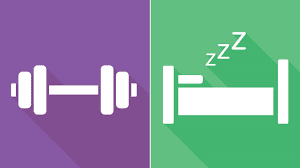While a few high-achieving professionals boast of taking minimal z's, research demonstrates that our sleep needs are astonishingly consistent.
If you fail to get at least 7 nightly hours of sleep, you're likely operating at a disadvantage.
Sleep and Work Productivity
Your fitness, health and body composition might be paying the price of sleep deprivation. Highly productive people sometimes have hefty ambivalence toward sleep, both craving and ostracizing it.
Even though effect fat loss strategies for busy professionals can be implemented, adequate sleep is essential for optimal performance.
Are you more productive when you work eighteen hour days? Can't you just shore up your droopy eyelids by downing yet another cup of coffee?
Unfortunately, no. New scientific research demonstrates that going without enough sleep for more than an occasional day or two can play havoc on your wellness, memory, concentration, temper, and ability to arrive at decisions - even if you believe you're doing all right.
The consequences of lack of sleep are further described in detail in neuroscientist Dr. Matthew Walker's best selling book Why We Sleep.
Is Sleep a Waste of Time?
If you require a good reason to begin sacking out earlier or sleeping later, here it is.
It turns out that far from being a time waster, sleep makes you fitter, stronger, smarter, and a more successful leader.
Lack of Sleep Can Damage Your Health
The evidence that sleep matters is incontrovertible and perpetually growing.
Let's begin with a freshly discovered link between sleep loss and serious sicknesses like diabetes and cancer. A scientific research study at the University of Chicago's school of medicine kept young, healthy volunteers alert for all but 4 hours a night for 6 nights straight. The result:
The levels of subjects' hormones shifted - particularly a hormone called leptin that bears on appetite. They got ravenously hungry, gulping down pizza and ice cream long after they'd have felt full generally, and their blood glucose shot up to pre-diabetic levels - an menacing result after less than one week of poor sleep.
Other analyses repeat those results so regularly that researchers now trust that not getting enough sleep is a lead cause of obesity and diabetes, both of which are on the rise across the country.
Sleep Deprivation, Immunity and Cognitive Performance
At the same time, the World Health Organization (WHO) has accumulated data from around the Earth showing that sleep loss depresses the immune system, to the point where WHO is thinking about labeling chronic sleep loss a carcinogen, comparable to tobacco and asbestos.If you've ever been so tired out that you had to re-read the same paragraph several times to grip its meaning and soon blanked out what you read, you already know what sleep investigators have lately demonstrated about the effects of too little sack time on productivity.
One experiment at a school of medicine kept subjects up until four A.M., woke them at eight A.M., and then fed them a series of tests designed to measure memory, vigilance, and the ability to react quickly to fresh data.
The researchers were startled to find that subjects' mental acuity slumped markedly after just one night and kept falling with each successive night of 4 hours' sleep.
Even more distressing: The study's volunteers were incognizant of their deterioration.
One woman, so tired that she could barely say her name, was all the same sure she was able to drive home.
Regardless how much you believe you're achieving when you pull an all-nighter, it's likely to a lesser degree than what you could accomplish if you got some sleep then returned to work.
Sleep and Memory
A study gave volunteers a list of words to memorize and then were kept alert for twenty-four hours, their power to recall the words fell by forty percent.
Memory betters during sleep, so that if you get a full 7 to 9 hours sleep tonight, your recall of all that happened today will be twenty percent to thirty percent sharper than it is directly after the day's events happen.
For professionals and leaders, the finest reason to get enough shut eye might be to avoid making dense, costly decisions.
A sleep researcher recently gave 3 groups of subjects the same pieces of data. Those who walked off and spent at least 7 of the next 12 hours sleeping were able to brand broader and more lucid connections than those who didn't get much (or any) sleep or those who attempted to analyze the data right away.
Perform Better With Healthy Sleep
As a general rule, most otherwise prudent fitness enthusiasts, students and professionals would enjoy finer accomplishments if they maintained healthy sleep habits.
To explore more about the science behind our sleep, it's benefits and the cost of sleep deprivation, check out Dr. Matthew Walker's best selling book Why We Sleep.
If you purchase the book using the Amazon links I've provided in this article, I may receive a small commission.
Also Read




No comments:
Post a Comment